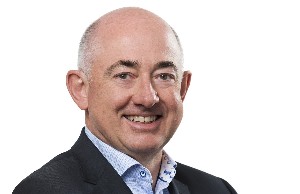by Jenny Ruth

Dale-Jones said the committee has considered whether the level 5 certificate “was hitting the mark” and whether a sub-group of advisers should be held to a higher standard when providing investment planning advice.
“We decided that we're not making a proposal to impose additional requirements on a sub-group,” he said.
While the latest version of level 5 has been updated, there's no requirement for those who have already achieved it to repeat the exercise.
The committee has also had a good look at the code's continuing professional development requirements and believes they should be made clearer.
Dale-Jones stressed that the level 5 certificate is a minimum requirement, while FANZ chief executive Nick Hake said his members should be aiming to achieve a higher standard.
Hake said a survey of members had found 76% thought the level 5 certificate should be retained as a minimum barrier to entry, but 21% said the benchmark should be higher.
“None of us want the minimum.”
Dale-Jones said both individual financial advisers and the financial advice providers (FAPs) they work for “should be across whether the level of education of that adviser is appropriate to the work they're doing.”
“Being professional is not about being right all the time,” it's about having the appropriate processes and practices in place to ensure the advice they're giving is sound.
Continuous professional development (CPD) should not just mean watching an online training programme, Dale-Jones said.
“It is absolutely doing courses, including online courses,” but it's also thinking about other ways that an adviser can develop greater competence and skill.
In this regard, mentoring programmes can benefit both the mentor and the person they are mentoring, Dale-Jones said.
“We want the concept of CPD to be very broad.” While that can include work experience, advisers can't just call providing advice CPD.
Asked whether providing financial advice is a profession, Dale-Jones said being professional “is very much an attitudinal thing” and that it's in financial advisers' interests to want to be professional and to be seen as being professional, he said.
Hake said advisers “have to earn the right” to be called professionals.
| « Embracing GenAI: A Roadmap for NZ Financial Services Companies - Part 3 | Smartshares lifts FUM 8.2% between December and June » |
Special Offers
Sign In to add your comment

© Copyright 1997-2026 Tarawera Publishing Ltd. All Rights Reserved
I also agree in a general sense that we should all be looking to continually improve ourselves, our knowledge and the advice and value we give to clients. I also think actual experience is underrated, with an emphasis now to technical qualifications which has resulted in many seasoned, often more highly qualified and valuable advisers walk out the door in the last few years shaking their heads. How has that helped the public……….
However, a suggestion for Mr Hake: you are the Chief Executive of a MEMBER association. You are there to represent membership interests. If 76% of members say one thing, and 21% say something else, it is not for you to side with one group above another, unless a majority themselves determine a change is appropriate or necessary. Like your predecessor was supposed to know, your role is not to advocate on behalf of interests outside the association, i.e. the public, the regulator, educational facilities, self, etc.
If “None of us want the minimum”, firstly, who is the “us”? as the member survey results quoted seem to suggest something different to your statement.
I’ll play this silly game for a bit – let’s say we raise the bar and that a PhD becomes the minimum requirement for giving financial advice in New Zealand – no more of this CFP thing, ( some people with 6 papers done in the Diploma – if they did that a long time ago - some with 8 papers in the Diploma they did it more recently (we didn’t hear much about that difference, now did we?). None of the CLU stuff anymore – a PhD is it – that becomes the minimum standard. How long before someone comes along and states that this new minimum standard held by the one remaining qualified adviser in the country, isn’t enough?
I would imagine somewhere, some group that has a vested interest, would suggest it isn’t enough.
Oh – and what is professionalism? I thought this definition may be useful to you, Mr Hake - This is how we “have to earn the right” to be called one;
Professional ( Merriam Webster Dictionary)
adjective
: of, relating to, or characteristic of a profession
: engaged in one of the learned professions
: characterized by or conforming to the technical or ethical standards of a profession
: exhibiting a courteous, conscientious, and generally business like manner in the workplace
: participating for gain or livelihood in an activity or field of endeavour often engaged in by amateurs
: having a particular profession as a permanent career
: engaged in by persons receiving financial return
: following a line of conduct as though it were a profession
noun
: one that is professional
especially : one that engages in a pursuit or activity professionally
I think the majority of advisers are doing the right thing for their clients.